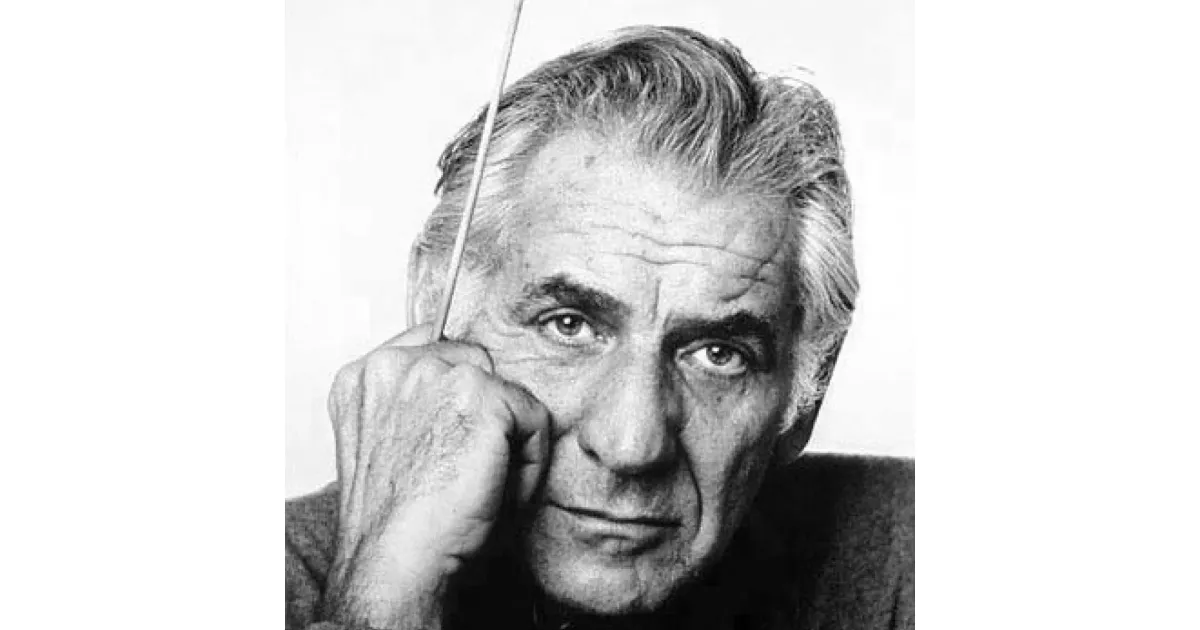An overview of the childhood and early education of Leonard Bernstein, highlighting the experiences that shaped the journey.
Leonard Bernstein was a highly influential American conductor, composer, pianist, educator, author, and humanitarian. He achieved international recognition as the first American-born conductor to gain such acclaim. Celebrated for his prodigious talent, Bernstein received numerous honors including seven Emmy Awards, two Tony Awards, and 16 Grammy Awards. He was also nominated for an Academy Award and honored with the Kennedy Center Honor in 1981, solidifying his legacy as one of the most significant figures in American music history.
August 25, 1918: Leonard Bernstein's Birth
On August 25, 1918, Louis Bernstein, later known as Leonard Bernstein, was born. He became a celebrated American conductor, composer, pianist, music educator, author, and humanitarian.
March 30, 1932: First Public Piano Performance
On March 30, 1932, Bernstein gave his first public piano performance, playing Brahms's Rhapsody in G minor at a studio recital.
1932: Birth of Burton Bernstein
In 1932, Leonard Bernstein's youngest sibling, Burton, was born.
1935: Enrollment at Harvard College and First Composition
In 1935, Bernstein enrolled at Harvard College to study music, and he composed his first extant composition, Psalm 148.
1939: Graduation from Harvard
In 1939, Bernstein graduated from Harvard with a Bachelor of Arts, cum laude.
1939: Performance of "The Cradle Will Rock"
In 1939, as a college student at Harvard, Bernstein organized and led a performance of Marc Blitzstein's banned musical, "The Cradle Will Rock", about the struggles of the working class.
1940: Attendance at Tanglewood Music Center
In 1940, Bernstein attended the inaugural year of the Tanglewood Music Center and studied conducting with Serge Koussevitzky.
1941: Diploma from Curtis
In 1941, Bernstein received a diploma in conducting from the Curtis Institute of Music.
April 1943: Sought advice from Aaron Copland
In April 1943, Bernstein sought advice from Aaron Copland about living as a gay man in the public eye.
1943: Conducting Debut with the New York Philharmonic
In 1943, Bernstein's last-minute conducting debut with the New York Philharmonic at Carnegie Hall, broadcast live nationwide, caused him to become famous overnight.
September 9, 1951: Marriage to Felicia Montealegre Cohn
On September 9, 1951, Bernstein married actress Felicia Montealegre Cohn and they had three children: Jamie, Alexander, and Nina.
1951: Head of Orchestra and Conducting at Tanglewood
In 1951, Bernstein became head of the orchestra and conducting departments at Tanglewood after Koussevitzky's death.
November 14, 1954: Omnibus Television Lecture
On November 14, 1954, Bernstein presented the first of his television lectures for the CBS Television Network arts program Omnibus, entitled "Beethoven's Fifth Symphony."
November 23, 1963: Kennedy Memorial Concert
On November 23, 1963, the day after President John F. Kennedy's assassination, Bernstein conducted a nationally televised memorial featuring Mahler's Symphony No. 2.
1964: Sale of Redding, Connecticut house
In 1964, the Bernstein family sold their house in Redding, Connecticut. Bernstein maintained a studio with a piano in each of his dwellings.
March 24, 1965: Stars for Freedom Rally
On March 24, 1965, Bernstein participated in the Stars for Freedom Rally in support of the marchers heading from Selma to Montgomery.
January 21, 1968: "Broadway for Peace"
On January 21, 1968, Bernstein and Paul Newman co-hosted "Broadway for Peace" to support the Congressional Peace Campaign Committee, with Bernstein composing "So Pretty" for Barbra Streisand.
1968: Robert Kennedy Funeral Mass
In 1968, after Senator Robert F. Kennedy was assassinated, Bernstein conducted the "Adagietto" movement from Mahler's Symphony No. 5 at the funeral mass.
January 14, 1970: Fundraiser for the Black Panther Party
On January 14, 1970, Bernstein and his wife Felicia held an event at their Manhattan apartment seeking to raise awareness and funds for the defense of members of the Black Panther Party.
1972: End of Young People's Concerts
In 1972, Bernstein's influential series of music education programs, the Young People's Concerts, ended after 53 episodes.
1972: Rostropovich Prohibited to travel outside of the Soviet Union
In 1972, Mstislav Rostropovich was prohibited to travel outside of the Soviet Union.
1972: Charles Eliot Norton Chair at Harvard
In the 1972 academic year, Bernstein was appointed to the Charles Eliot Norton Chair as Professor of Poetry at Harvard, where he delivered six lectures, The Unanswered Question.
1974: Release of Mstislav Rostropovich from the USSR
In 1974, Bernstein played a key role in the release of Mstislav Rostropovich from the USSR after Rostropovich had been held in disgrace for years.
1976: Bernstein leaves Felicia
In 1976, Bernstein left Felicia for a period to live in Northern California with Tom Cothran.
June 16, 1978: Death of Felicia Montealegre Cohn Bernstein
On June 16, 1978, Felicia Montealegre Cohn Bernstein died of lung cancer, with Bernstein caring for her until her death.
1980: Commencement Speech at Johns Hopkins University
In 1980, Bernstein gave a commencement speech at Johns Hopkins University warning the graduating class of the dangers of nuclear proliferation.
1982: Co-founded the Los Angeles Philharmonic Institute
In 1982, Bernstein co-founded the Los Angeles Philharmonic Institute, a summer training academy inspired by Tanglewood. He served as artistic co-director and taught conducting classes for two summers.
April 30, 1983: HIV/AIDS Fundraiser at Madison Square Garden
On April 30, 1983, Bernstein participated in one of the earliest HIV / AIDS fundraisers at Madison Square Garden, conducting the Ringling Bros. and Barnum & Bailey Circus Orchestra.
June 1983: Statement on AIDS
In a written statement for a June 1983 benefit for AIDS advocacy in Houston, Bernstein stated, "AIDS is not, repeat not, the Gay Plague it is so often made out to be; it is part of the human condition, and must be universally researched and annihilated."
1983: Dedication of 65th Birthday to Nuclear Disarmament
In 1983, Bernstein dedicated the activities surrounding his 65th birthday to the issue of nuclear disarmament.
1985: "Journey for Peace" Tour
In 1985, Bernstein brought the European Community Youth Orchestra on a "Journey for Peace" tour across Europe and Japan, performing at the Hiroshima Peace Ceremony.
May 1986: Inaugural Concert of the Schleswig-Holstein Musik Festival
In May 1986, Bernstein conducted the Bavarian Radio Symphony Orchestra and Chorus for the inaugural concert of the Schleswig-Holstein Musik Festival, performing Haydn's Die Schöpfung (The Creation).
May 1986: Bernstein Festival at the Barbican Centre
In May 1986, the London Symphony Orchestra mounted a Bernstein Festival at the Barbican Centre, featuring a concert in which Bernstein conducted his own works. Queen Elizabeth II attended the performance.
November 8, 1987: "Music for Life" Concert
On November 8, 1987, Bernstein participated in "Music for Life", a concert at Carnegie Hall to benefit the Gay Men's Health Crisis, dedicated to Dr. Mathilde Krim.
1987: Celebration of Nadia Boulanger at Fontainebleau
During summer 1987, Bernstein celebrated the 100th anniversary of Nadia Boulanger at the American Conservatory in Fontainebleau and gave a master class.
1988: Televised gala for 70th birthday
In 1988, Bernstein had a lavish televised gala to celebrate his 70th birthday.
November 15, 1989: Refusal of National Medal of Arts
On November 15, 1989, Bernstein refused the National Medal of Arts from President George H. W. Bush in protest against the revoked National Endowment for the Arts grant for an AIDS-related art exhibit.
December 25, 1989: Beethoven's Symphony No. 9 in Berlin
On December 25, 1989, Bernstein conducted Beethoven's Symphony No. 9 in East Berlin's Konzerthaus as part of a celebration of the fall of the Berlin Wall, replacing "joy" with "freedom" in Schiller's Ode to Joy.
August 1990: Final Concert Performance
In August 1990, Bernstein had his final concert performance.
August 19, 1990: Last Concert
On August 19, 1990, Bernstein conducted his last concert with the Boston Symphony Orchestra at Tanglewood.
October 9, 1990: Retirement from Conducting
On October 9, 1990, Bernstein announced his retirement from conducting.
1990: Founding of the Pacific Music Festival
In 1990, Bernstein founded the Pacific Music Festival in Sapporo, Japan, with Michael Tilson Thomas and the London Symphony Orchestra, emphasizing musical training for young students.
1990: Receiving the Praemium Imperiale and Establishing BETA Fund
In 1990, Bernstein received the Praemium Imperiale and used the $100,000 prize to establish The Bernstein Education Through the Arts (BETA) Fund to develop an arts-based education program.
1990: Initiation of Artful Learning Project
In 1990, Bernstein used his Praemium Imperiale award money to initiate a project in Nashville, Tennessee that would eventually lead to the nationwide teaching model known as Artful Learning.
April 1992: Posthumous Establishment of the Leonard Bernstein Center
In April 1992, the Leonard Bernstein Center was posthumously established, initiating extensive school-based research that led to the current Leonard Bernstein Artful Learning Program.
2023: Premiere of "Maestro"
In 2023, Bradley Cooper's drama film "Maestro", which chronicles the relationship between Bernstein and his wife Felicia Montealegre, premiered at the Venice International Film Festival.
Mentioned in this timeline

Elizabeth II reigned as Queen of the United Kingdom and...

John F Kennedy JFK was the th U S President...

Google LLC is a multinational technology company specializing in online...
CBS Broadcasting Inc CBS is a prominent American commercial broadcast...
California is a U S state on the Pacific Coast...
The Kennedy Center Honors are annual awards recognizing individuals and...
Trending
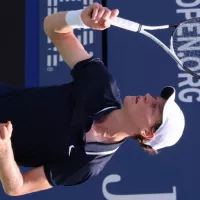
3 months ago Jannik Sinner Dominates, Reaches Paris Masters Final, Eyes No. 1 Ranking Return
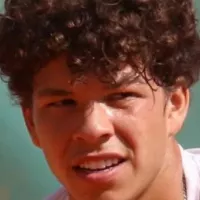
3 months ago Ben Shelton faces Kamil Majchrzak at ATP Basel after Rune's setback: Predictions.
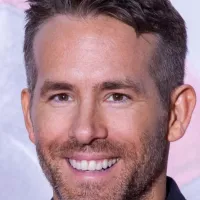
6 months ago Ryan Reynolds Hints at Deadpool Joining Avengers in Cryptic Instagram Post
8 months ago Chiefs Dominate 2025 NFL Schedule with Seven Prime-Time Games
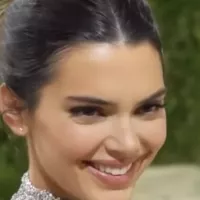
3 months ago Kendall Jenner Celebrates Her 30th Birthday with Nude Beach Photos and Bikini Looks
11 months ago Latvia Imposes Entry Ban on Citizens from Russia and Belarus Amid Tensions
Popular

Thomas Douglas Homan is an American law enforcement officer who...

William Franklin Graham III commonly known as Franklin Graham is...

Jupiter is the fifth and largest planet from the Sun...

XXXTentacion born Jahseh Dwayne Ricardo Onfroy was a controversial yet...

Instagram is a photo and video-sharing social networking service owned...

Kristi Noem is an American politician who has served as...
